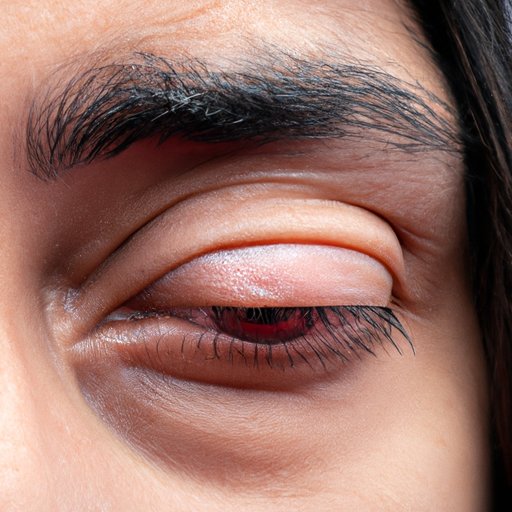
Introduction
Pinkeye, also known as conjunctivitis, is a common eye infection that affects people of all ages. While it is usually not serious, it is highly contagious and can easily spread from person to person. In this article, we will explore everything you need to know about treating and preventing pinkeye.
What is Pinkeye?
Pinkeye is an inflammation of the conjunctiva, the thin layer of tissue that covers the white part of the eye. It can be caused by a variety of factors, including viruses, bacteria, allergies, and irritants. The symptoms of pinkeye include redness, itching, tearing, and discharge.
There are three different types of pinkeye: viral, bacterial, and allergic. Viral pinkeye is the most common and is caused by a virus. It typically starts in one eye and spreads to the other. Bacterial pinkeye is caused by a bacterial infection and can cause a thicker discharge than viral pinkeye. Allergic pinkeye is caused by an allergic reaction to things like pollen or dust. It affects both eyes and can be seasonal or year-round.
Pinkeye can be caused by a variety of factors, including touching your eyes with dirty hands, using contaminated eye makeup, or sharing towels or pillowcases with someone who has pinkeye. It is important to take steps to prevent the spread of pinkeye, including washing your hands frequently, avoiding touching your eyes, and avoiding close contact with people who have pinkeye.
Treatment Options
There are several treatment options available for pinkeye, depending on the severity and cause of the infection. Home remedies can be effective for mild cases of pinkeye. Warm compresses can help soothe the eyes and reduce inflammation, while natural remedies like teabags, honey, and aloe vera can help reduce redness and promote healing.
Over-the-counter treatments like eye drops and ointments can also be effective. Eye drops containing antihistamines or decongestants can help relieve itching and redness, while antibiotic eye drops or ointments can help fight bacterial infections. If your symptoms are severe or do not improve with over-the-counter treatments, your doctor may prescribe a stronger medication.
It is important to use each treatment option properly to avoid further irritation or infection. Be sure to wash your hands before and after using any eye drops or ointments, and avoid sharing your medications with others.
Health Conditions and Risk Factors
There are several health conditions that can increase your risk for pinkeye, including diabetes, HIV, and autoimmune diseases. It is important to take extra precautions if you have one of these conditions or if you have a weakened immune system. Additionally, avoiding exposure to irritants like smoke and dust can help reduce your risk of developing pinkeye.
Caring for the Eyes
Proper eye care is important for promoting optimal healing for pinkeye. Resting the affected eye and avoiding contact lenses can help reduce irritation and prevent the spread of infection. You should also avoid harsh irritants like smoke and dust and maintain proper eye hygiene, including washing your hands frequently and cleaning your eyeglasses regularly.
Natural Remedies
There are several natural remedies that can be effective for treating pinkeye. Teabags, for example, can help reduce inflammation and promote healing. Simply steep a teabag in warm water, let it cool, and place it over the affected eye for 10-15 minutes. Honey and aloe vera can also be effective natural remedies for pinkeye. To use these remedies, simply apply a small amount to the affected eye and let it sit for 10-15 minutes before rinsing off.
While natural remedies can be effective for mild cases of pinkeye, it is important to remember that they should not be used as a substitute for medical treatment. If your symptoms are severe or do not improve with home remedies, you should seek medical attention.
Conclusion
Pinkeye is a common and highly contagious eye infection that can be caused by a variety of factors. While it is usually not serious, it is important to take steps to prevent its spread and to seek proper treatment when necessary. With the information and tips included in this article, you can effectively treat and prevent pinkeye and promote optimal eye health.





